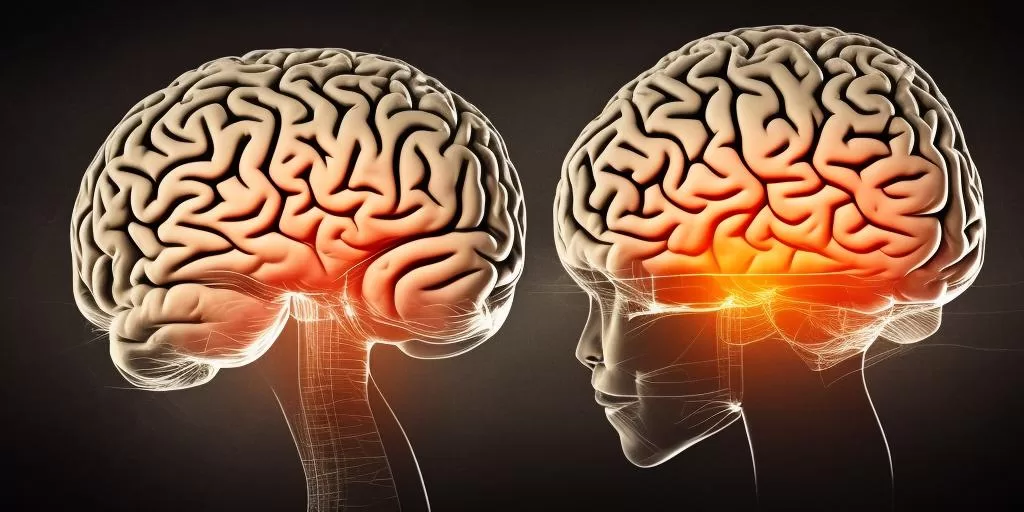Mental conditioning is an important part of personal development and performance. It helps us to stay focused, build confidence, and maintain a positive outlook. By improving our mental game, we can take control of our lives and reach our maximum potential.
As high performers, we often neglect our mental health needs due to the pressure of reaching peak performance. While training is essential in order to ensure success in any field, it’s also necessary to pay attention to your mind. Mental conditioning gives us the tools we need to remain mentally strong during stressful situations and have a more positive outlook on life overall. This can help us feel more motivated and energized while pursuing our goals.
Mental conditioning can also make it easier for us to tackle difficult tasks without feeling overwhelmed or defeated by them.
Table of Contents
- 1 What is the Mental Game?
- 2 Mental Game Training Benefits
- 3 Mental Skills Training: How to Work on Your Mental Game?
- 3.1 Develop Self-Awareness through Mindfulness
- 3.2 Learn Mind Control and Tame Your Thoughts
- 3.3 Stop Relying on Motivation
- 3.4 Stop Relying on Self-Confidence
- 3.5 Let Go Of The Outcome and Focus on the Job
- 3.6 Build Success Habits
- 3.7 Be Realistic and Don’t Let Your Ego Get in the Way
- 3.8 Stop Overthinking and Just Do Your Shit!
- 3.9 Focus On Your Strengths
- 4 Master Your Mental Game with a Coach
- 5 Conclusion: Boost Your Mental Game and Increase Your Success Rate
What is the Mental Game?
The mental game is a concept that refers to the inner workings of a person’s mind and its impact on their performance. It involves developing strategies, techniques, and methods for improving mental processes to help achieve peak performance. To be successful in any field demands more than just physical prowess; having a superior mental game is essential for anyone looking to become a top performer.
When it comes to improving the performances of athletes, for instance, much emphasis has been placed on the importance of brain-training games and exercises. Such activities can help an athlete develop better decision-making skills, enhancing their focus and concentration when competing at a high level. Besides this, they can also benefit from learning emotional management techniques such as imagery or positive self-talk that could give them an edge over other players in terms of focus and motivation when under pressure.
On the other hand, the mental game in business is a way to increase productivity, manage stress, and create success. With the current emphasis on wellness, it is no surprise that many companies are now actively seeking out new ways to address the mental health of their employees. One such intervention tool is mental coaching – an approach to psychological health that uses evidence-based techniques to help people understand their thoughts and feelings in order to better manage them. This kind of intervention can be invaluable for those working in business environments, where emotions can often run high and cause unhelpful reactions or behaviors which could lead to costly mistakes or damage relationships.
Through mental coaching, individuals learn how to identify and design strategies that will help them reach their goals without compromising their well-being.
How is Perfecting Your Mental Game Useful?
The mental game coaching process is deeply related to mental performance coaching. The terms are often used interchangeably but to be precise, the mental game itself is more about the thoughts and emotions that appear in one’s mind, whereas mental performance coaching focuses more on cognitive performance and aims to train skills such as focus, concentration, memory, task-processing capabilities, memory recall, etc. The difference is pretty similar to mental skills coaching vs. mindset coaching – the first one focuses more on the mental skill themselves, while the latter on the mindset and attitude, however, they can all be considered as sub-branches of mental coaching because no matter if it’s mental game coaching, mental skills and performance coaching, mental conditioning, or mindset coaching – they all focus on the mind.
Perfecting your mind game is an invaluable tool in not just business, but life in general as well. Mental training and coaching to master the inner workings of the mind can result in greater levels of focus, resilience, and self-confidence when faced with difficult situations. A mental game coach can help to identify weaknesses and blind spots that are preventing you from achieving success across a broad range of topics.
For example, working with a mental game coach can help you stay disciplined and consistent in order to reach your goals more effectively. It provides useful strategies for thwarting negative thinking patterns that lead to stress or anxiety. Traders, entrepreneurs, CEOs, and even professional athletes have benefited greatly from perfecting their mental game by learning techniques such as visualization, relaxation techniques, goal setting, and cognitive reframing which ultimately improve performance.
Practical Examples
The mental game is an important tool to help people stay focused and motivated. Practical examples of the mental game can be seen in everyday life, such as taking a break from work to do something you enjoy or having a positive mindset when tackling a difficult task. For example, listening to a mental health podcast can offer insight into how others manage their emotional landscape while offering advice on how to use your personal resources more effectively.
Also, if given the opportunity it’s important to take advantage of lifetime opportunities that will help you grow personally or professionally; these situations are often where the power of the mental game can be brought into play. Examples of this could include getting involved with new hobbies or attending seminars about specific topics related to your career.
Other examples of mental game training may include brain-training games and concentration training. Brain-training games, such as puzzles and memory activities, sharpen the user’s cognitive abilities and can be played online or virtually with others. These games challenge the brain in order to improve skills such as logic, problem-solving abilities, reasoning, and speed of calculation (task-processing performance). Concentration training involves activities that boost the ability of users to pay attention for extended periods of time. This can be done through advanced meditation practice or playing simple concentration exercises like matching cards or memorizing a word list. Both of these types of mental games offer great benefits to their players by improving focus, reducing stress levels, and giving them better control over their thoughts. Furthermore, they help people develop a greater ability to remain attentive during regular daily activities like studying or work tasks.
However, the most important part of mental game training is focusing on one’s thoughts, rearranging them, and using the inner dialogue to optimize the content of your mind. The mental game itself focuses mostly on what’s going on inside your head and aims to restructure it in a way allowing you to boost your mental performance so, for instance, if you’re a person who is always overthinking and telling yourself you’re not gonna make it – mental game training will teach you how to tame your inner dialogue so it doesn’t stand in your way.
Mental Game Training Benefits

Mental game training uses psychological techniques and strategies to improve one’s performance in sports, business, and life. Working with a behavior change expert who specializes in mental training can help you develop mind skills and increase your potential for success.
One key benefit of engaging in mental game training is that it teaches you how to manage stress and anxiety, which can interfere with your performance. When you are feeling stressed or anxious, it’s easy to get overwhelmed and be distracted from the task at hand. With mental game training, however, you learn how to identify what triggers these emotions so that they don’t get in the way of your success. Through this process, you will gain better control over yourself and be able to stay focused on achieving your goals even when the going gets tough.
Mental game training is also becoming popular among athletes, coaches, and sports psychologists. It’s a form of training that helps people improve their performance in sports by teaching them how to control their emotions and maintain focus throughout their game or event. Mental game training teaches athletes to better handle mental stressors and prepare for physical challenges, helping them be more successful overall. In addition to improving athletic performance, mental game training can help people better manage the brain aging process which allows them to keep their mental edge as they get older. With this type of specialized knowledge and skill set, athletes can remain competitive for longer periods of time without having to worry about declining cognitive abilities due to the demands of the sport itself.
Many coaches have seen firsthand how helpful mental game training can be in elevating an athlete’s performance while they are competing.
Psychological Adaptations
Mental training is an important component of success in any endeavor, whether it’s a business or athletic venture. Psychological adaptations to stress and pressure can be the difference between achieving goals or falling short. As a mental game coach, I have seen how team effectiveness workshops help create psychological adaptation strategies to ensure success. My approach focuses on developing players’ self-awareness and understanding of the mental state they are in when competing. This includes learning basic techniques such as visualization, goal setting, and journaling. Additionally, I like to emphasize the importance of effective communication with teammates as well as coaches for successful performance in competition settings.
In terms of business, mental training can help entrepreneurs develop psychological adaptations that are necessary for success. Mental games, such as puzzles, crosswords, and Sudoku can help adults hone their problem-solving abilities while sharpening their minds. Other mental activities may involve memory recall exercises, which teach an individual to remember key details from conversations and business meetings. Such mind game examples can be particularly useful for entrepreneurs when pitching ideas or negotiating contracts with potential customers or investors.
Entrepreneurs often benefit from learning positive affirmations and mantras for daily mindfulness practice. This type of mental training helps individuals to stay focused on achieving goals despite obstacles that arise during the journey of entrepreneurship. Furthermore, it provides a sense of comfort in knowing that self-doubt and fear can be mitigated with positivity and self-confidence.
Neurological Adaptations
Neurological adaptations are the changes in our brains that occur when we engage in a certain behavior or activity over time. When we practice mental training techniques, these adaptations occur as our neurons rewire themselves to form new pathways of thinking and feeling. This phenomenon is known as neuroplasticity and it is what allows us to gain control over our emotions and reactions more effectively than before. Neuroplasticity also helps us learn faster by allowing us to better understand complex concepts or recall specific details with ease.
Mental toughness is an important attribute for a person to maintain in order to stay focused, motivated, and productive. Through mental training and challenging activities such as mind game questions, the human brain can develop neurological adaptations that make individuals more adept at dealing with life’s challenges. Such adaptations allow us to become more resilient and better equipped to handle whatever comes our way. Recent studies have found that those who frequently engage in mental training activities can form new neurological pathways between neurons within their brains, which helps with memory recall and information processing. The increased activity of these neurons allows people’s brains to become attuned to their environment, enabling them to quickly assess potential threats or opportunities around them. Mental toughness challenges related to overcoming mental blocks and barriers also help strengthen neural connections that may have been weakened over time due to stress or lack of use.
Physical Adaptations
Physical adaptations to mental training is a topic that relates mostly to athletes or those engaged in some sort of physical activity (e.g. jogging, yoga, basketball, football). As a mental coach, I find that mental training can be an important addition to physical conditioning. Through my experience in working with clients, I have seen how athletes physically get stronger, faster, and more powerful in addition to improving their mental skills. When someone embarks on a journey of brain training, they need to be aware that their body will try to adapt as well.
In order for brain training to become successful and beneficial to an individual’s life, there must be recognition of the importance of one’s body and mind connection. This means that through consistent practice and repetition, physicality becomes a factor in the success or failure of any program. Engaging in regular exercise such as yoga or even going for daily walks can help improve concentration levels and vice versa – by combining mental training with physical activities, one can actually strengthen their skill in the activity (sport) they perform. Science has already proven it possible and there is a growing body of research suggesting that mental training is beneficial for physical performance. For instance, take a look at the basketball coach Sean Miller and the way he teaches his athletes – the sole act of him psychologically disassembling opponents’ actions and using this insight against them is just marvelous. This is a very good example of how mental game coaching transfers to real-life examples that allow one to perform better physically. That’s precisely how mental coaches use mental toughness psychology to help their clients get physically stronger and more powerful in addition to developing a strong mentality and improving their mental performance along with mental skills.
Mental Skills Training: How to Work on Your Mental Game?

Mental Skills Training, often referred to as MST, is a process that helps individuals develop the mental skills necessary for successful mental performance. Although it may sound like a simple concept on paper, MST can prove to be an amazing tool for improving one’s overall mental health, well-being, and mental performance. By honing in on specific areas of focus, such as developing coping strategies or learning how to manage stress, individuals can gain the tools they need to keep their minds healthy and strong.
MST involves teaching individuals various techniques that help them learn how to effectively manage their own emotions and behaviors and enhance cognitive abilities such as memory recall and concentration. Through this training, individuals are able to become more aware of their thoughts and feelings and use this newfound awareness to make smarter decisions for themselves.
In this section, we will explore different mental game coaching strategies that can help you develop a strong mentality (mental toughness) and improve your mental performance.
Develop Self-Awareness through Mindfulness
Self-awareness is an essential part of living a life of strong mentality, mental toughness, and mental health. Mindfulness is one of the best tools to help us cultivate self-awareness. Practicing mindfulness helps us become aware of our thoughts, feelings, and actions in the present moment and gain insight into what influences them. It helps us recognize patterns in our behaviors, understand how our emotions are connected to our actions and be able to respond instead of react when faced with difficult situations.
Developing self-awareness with mindfulness can help us better manage both positive and negative states of mind. With mindful practice, we can learn how to observe without excessive criticism or attachment so that we can make choices that are more aligned with who we want to be as individuals, rather than being swayed by impulses or external factors.
Learn Mind Control and Tame Your Thoughts
Learning to control our thoughts is an essential part of personal growth and development. It can be a difficult undertaking, but with the right guidance and effort, it is achievable. A great way to start this journey of thought-taming is by playing brain-training games or engaging in regular meditation. Not only will these activities help us gain control over our thought processes, but they will also improve our mental well-being and overall cognitive functioning.
Brain training games are designed to train the brain on different skills such as concentration, problem-solving, and memory recall. These activities will help us become more aware of how we think and allow us to develop strategies that can be used when faced with difficult situations in life. Regular practice will strengthen our neural networks which improves reaction time while making decisions and increases focus levels during performance tasks.
In the end, by incorporating mind control training, you will be able to tame your thoughts by quieting down the mind which allows for an instant concentration boost whenever you need it. It’s also worth mentioning that this state of mind can be anchored by using specific gestures or symbols that are a part of advanced meditative practices.
Stop Relying on Motivation
Motivation is a strong force that can propel us forward in our lives and help us reach our goals. However, relying on motivation to get things done is not the best approach when it comes to achieving major milestones. Instead, it’s important to create a plan for success and stick with it regardless of how motivated you are feeling that day. For example, every night you go to bed, you can write down what tasks need to be accomplished the next day and remind yourself that no matter how you’re feeling, they must still be completed. This will help you with getting your shit done no matter what mood you’re in. It also prevents you from obsessing over motivation or lack thereof; if your plan says you need to do something then there’s no questioning whether or not you’ll do it – the answer is already predetermined!
Stop Relying on Self-Confidence
The concept of self-confidence can be a tricky one. We often rely on it to get us through tough situations or difficult moments in life, but the truth is that relying solely on our own confidence can cause mental blocks and prevent us from achieving our goals. Self-confidence isn’t enough; we need to break through those mental blocks and create a plan for success.
We must acknowledge that failure is inevitable at times, no matter how confident we feel about ourselves or our abilities. It’s important to remain aware of this reality and recognize that failure doesn’t mean you are not capable or intelligent enough – it just means you failed to reach your goal at this moment. Instead of allowing yourself to become discouraged by this temporary setback, use it as an opportunity to learn and grow from the experience.
Let Go Of The Outcome and Focus on the Job
Letting go of the outcome and focusing on the job can be a difficult lesson to learn. When we invest time and energy into something, it is easy to become attached to the result that we expect. We may become so invested in the outcome that our focus shifts away from what really matters – the task at hand. It is important to remember that, ultimately, results are out of our control. Results depend on many factors, some outside of our own influence. The only thing within our control is doing a good job – giving it all we’ve got and making sure that we have done everything possible to achieve success. This means taking consistent action steps each day and working toward our goals in an efficient manner with a clear headspace.
Build Success Habits
Building success habits is an essential part of attaining top performance and a winning mindset. It requires self-discipline and dedication, but with these tools, anyone can achieve their goals if they are willing to put in the work. Habits like setting attainable objectives, creating a plan for how to reach those objectives, and staying focused on those objectives can help create a path to success. Also, developing good time management skills by planning ahead and scheduling tasks is important in order to stay on track and make progress toward achieving goals. Consistently completing small tasks that lead up to larger accomplishments will also help build momentum and drive progress. Lastly, having access to mentors or coaches who can provide feedback throughout the process as well as resources that can be utilized during difficult times are invaluable when it comes to achieving success through the habit-building process.
Be Realistic and Don’t Let Your Ego Get in the Way
In life, it is important to be realistic and not let your ego get in the way of achieving success. Having a clear mind and pure focus can help you stay on track and make the best decisions for yourself. It is easy to get caught up in our emotions, especially when dealing with something that we are passionate about or have strong feelings about. When this happens, it is important to take a step back and look at the situation objectively so that you can make an informed decision without letting your ego interfere.
It is also wise to listen to advice from others who may have more experience than us. While it’s easy to think that our own opinions are always right, sometimes there’s wisdom in listening to those who know better or have been through similar situations before.
Stop Overthinking and Just Do Your Shit!
One of the greatest obstacles we all face is overthinking, but it doesn’t have to be that way. To stop overthinking and just get on with doing your stuff, there are a few simple steps you can take. Firstly, set yourself goals and objectives, then plan out how you’re going to achieve them. This will help keep your focus on the task at hand and not allow any negative or distracting thoughts to creep in. Secondly, don’t waste time worrying about things beyond your control or planning too much for the future – just take action now! Finally, learn how to manage stress by taking regular breaks throughout the day and practicing relaxation techniques such as mindfulness meditation or yoga.
By learning how to stay focused and managing stress levels effectively, you can start tackling your tasks without getting stuck in overthinking mode.
Focus On Your Strengths
The world is ever-changing and nothing stands still. Despite the chaos, it is on us to stay focused on what matters. It is our inner strength that propels us forward and helps us reach our full potential. If we take the time to recognize our inner power, we can make progress toward our goals that otherwise would have remained out of reach.
When we focus on our strengths, it allows us to look at what we can do instead of what cannot be done. By understanding where we are most capable of excelling and dedicating ourselves to those tasks, we are able to move past any obstacles that stand in the way of success. We can confidently take on challenges knowing that if something does not come easily for us there will be another area where success will soon follow.
Master Your Mental Game with a Coach

It’s not always easy to stay mentally focused and push yourself beyond your limits on your own. That’s why having a mental game coach can be instrumental in mastering the mental side of any venture.
A good mental game coach will be able to help you identify your weaknesses and develop strategies for improvement with tailored guidance specifically for you. After recognizing which areas need the most attention, they will ask you powerful questions designed to assist in identifying opportunities for growth. This will help you gain clarity on what actions need to be taken to reach your goals while also providing deeper insights into how you think and perform at an optimal level.
The coaching process itself involves ongoing reflection and accountability sessions where progress is tracked through measurable milestones or outcomes that are established during each session.
Why is Training with a Coach More Effective?
Training with a mental coach is slowly becoming a popular way to reach goals in life, sports, and business and this is for good reason. Although individual training has always been available and can be successful, the additional guidance of a professional mental coach in the process can make all the difference. Working with a mental coach allows individuals to identify their specific needs and then receive personalized strategies for reaching their goals. Coaching also provides accountability and support throughout the entire journey.
Training with a mental coach can also be more effective than traditional methods of self-improvement because it focuses on the cognitive aspects of performance. Mental game coaching looks at how thoughts, emotions, and behavior affect an individual’s progress. Through this approach, business people, traders, managers, athletes, and other high performers are given strategies to help them set goals, focus better, manage stress levels, and become more resilient when faced with challenges. A mental coach also teaches clients how to recognize patterns that impede their potential for improvement or success and provides techniques to break these cycles.
The individualized coaching process starts with an assessment of strengths and weaknesses, self-awareness around motivation levels, any fears or concerns that could affect progress, and then setting achievable but challenging objectives. The mental coach will provide feedback during sessions as well as techniques that can help identify positive thinking patterns which can be used when facing difficult situations or challenges along the way.
All in all, performance coaching is an effective way to go and it can help you realize things that you wouldn’t be able to spot yourself. This is what the coaches are for. They can analyze your doing in an objective way so you can get a clear picture of where you’re at and what else needs to be done to achieve success. Finally, the main benefit of performance coaching is the support of an experienced coach throughout the whole coaching process.
Is Mental Game Coaching Really Worth It?
Mental game coaching can help individuals develop mental strategies to reach their goals, optimize their performance and feel more confident in their abilities. However, some may question whether the coaching process is really worth it.
The answer largely depends on your individual needs and situation. Mental game coaching can be beneficial for those looking to take control of their lives, develop better habits or gain clarity around a certain issue or goal they are trying to achieve. During the coaching process, you will get support from an experienced coach who will use tools such as cognitive behavioral therapy and positive psychology techniques to help you identify areas of improvement and create action plans to move closer to your goals. With continual guidance and support from a coach, you can work through any challenges that stand in your way and make lasting changes in your life.
A mental game coach who is involved in the mental game coaching process works in a similar fashion to a performance coach, except they focus solely on the mental game and related processes. This means that the coach helps their client to overcome negative thoughts and tame their minds through mental skills practice. This practice is performed solely in the client’s head and can be compared to exploring new terrains. The coach is there to assist with the process and help the client improve their mental performance through organizing their model of perceiving the world.
The benefits are improved mental health and mental performance, clear mind, improved emotional control, cognitive skills boost, and increased success rate in achieving one’s goals.
Conclusion: Boost Your Mental Game and Increase Your Success Rate

The final step to becoming successful is to boost your mental game. This aspect of success requires you to be mindful, stay focused and motivated, and keep pushing yourself. Mental strength can make all the difference in whether or not you achieve your goals. It requires us to nurture our minds with positive thoughts and practice self-discipline on a daily basis. Learning how to effectively manage stress and take regular breaks will further help improve our mental game which in turn will help increase our chances of being successful.
Developing strong problem-solving skills is also key when it comes to boosting your mental game. Knowing how to analyze the situation at hand and think critically about potential solutions can help you achieve the goals you want but the biggest benefit of the mental game coaching process is the ability to tame your thoughts and control your mind – once you can do that, it’s much easier to organize all the tasks in your head, get rid of negative emotions and thought patterns, and become finally able to pursue your objective with a clear mind as well as use this experience to gain an advantage over your competition.




